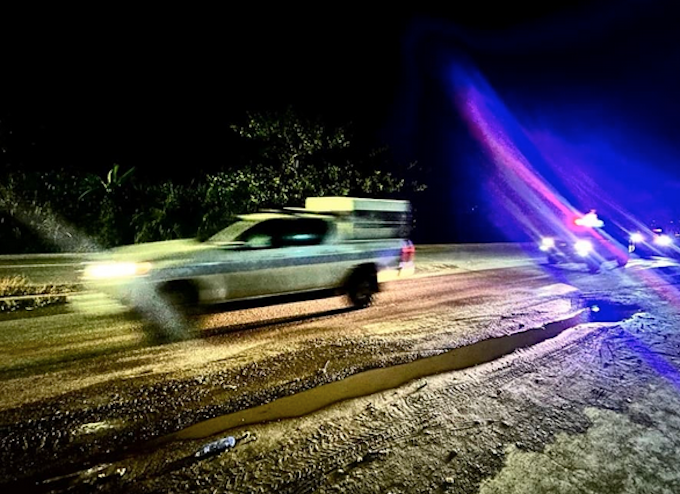
By Koroi Hawkins, RNZ Pacific editor
Police in Solomon Islands are on high alert ahead of the election of the prime minister today.
The two candidates for the top job are former foreign affairs minister Jeremiah Manele at the head of the Coalition for National Unity and Transformation, which is technically the incumbent government wrapped in new packaging, and the former opposition leader Mathew Wale who fronts a four party coalition preaching change.
At last count Manele’s camp claimed to have the support of 28 of the 50 elected MPs and Wale’s side said they had 20.
However, the numbers could shift significantly either way overnight as intense lobbying is expected from both camps to try and draw MPs across to their side.
There were also a handful of MPs yet to arrive in the capital Honiara from their electorates who could become tiebreakers given the close margins involved.
Honiara city has a well documented history of public unrest around political events, the most recent being the 2021 riots which spilled over from a seemingly small protest against the last government.
But the largest and most politically significant was the 2006 riots which forced the resignation of the newly elected prime minister Snyder Rini who was in office for only 14 days.
Parliament closed
The Royal Solomon Islands Police Force have issued a statement saying Parliament would be closed to the public for the election of the prime minister.
The process is a private members meeting not a sitting of Parliament and so will not be broadcast.
Deputy Police Commissioner Ian Vaevaso, who is in charge of security operations at Parliament, is calling on the public to respect the democratic process and accept its outcome.
“Officers are already doing high visibility foot beat along the street of Honiara and vehicle patrols as we prepare for the election of the Prime Minister.
“Police will not tolerate anyone who intends to disturb the process of the election of the Prime Minister.”
Weak political party laws ‘destabilising factor’ – Liloqula
The head of Transparency International Solomon Islands said the country’s weak political party legislation was skewing voters’ choices.
Almost half of the incumbent MPs who contested last month’s national election lost their seats and Our Party — the dominant party in the last government — only managed to return 15 of the more than 30 candidates it fielded.
Many of the newly elected MPs, particularly the independents, campaigned on platforms to either change the government or be an alternative voice in the house.
But Transparency Solomon Islands chief executive Ruth Liloqula said these same politicians, some of whom unseated incumbent government MPs, went on to align themselves with the Manele-led Coalition for National Unity and Transformation, which if successful in the prime minister’s election today would effectively return the former government to power.
“That kind of movement is what I refer to as a destabilising factor in our political stability, freedom for anyone to stand as an independent candidate that still stays.
“But for them to then, after winning as an independent candidate, then they come together and form a group that needs to be got rid of,” Liloqula said.
Manele’s sole competitor for the prime minister’s post, former opposition leader Wale in announcing his candidacy, appealed to newly elected MPs and independents who had campaigned on a platform for change to stay the course and join their ranks.
‘Voted . . . for change’
“The people of Solomon Islands have voted overwhelmingly for change from DCGA & Our Party. I therefore urge all newly elected independents, who were voted in on a mandate for change, to join us.
“This is the peoples clear wish,” he said.
Liloqula said the unfortunate thing about this game of numbers was that most of the MPs were not moving around on the basis of principles or national policies but for their own personal and political gain.
“What is the numbers game dependent on? Is it to serve the interests of this country or is it to serve the personal gain of the people who are playing this game?
“This is not the time to be doing this . . . they should all work together to bring up this country’s economy so that we can be going somewhere,” she said.
This article is republished under a community partnership agreement with RNZ.










































